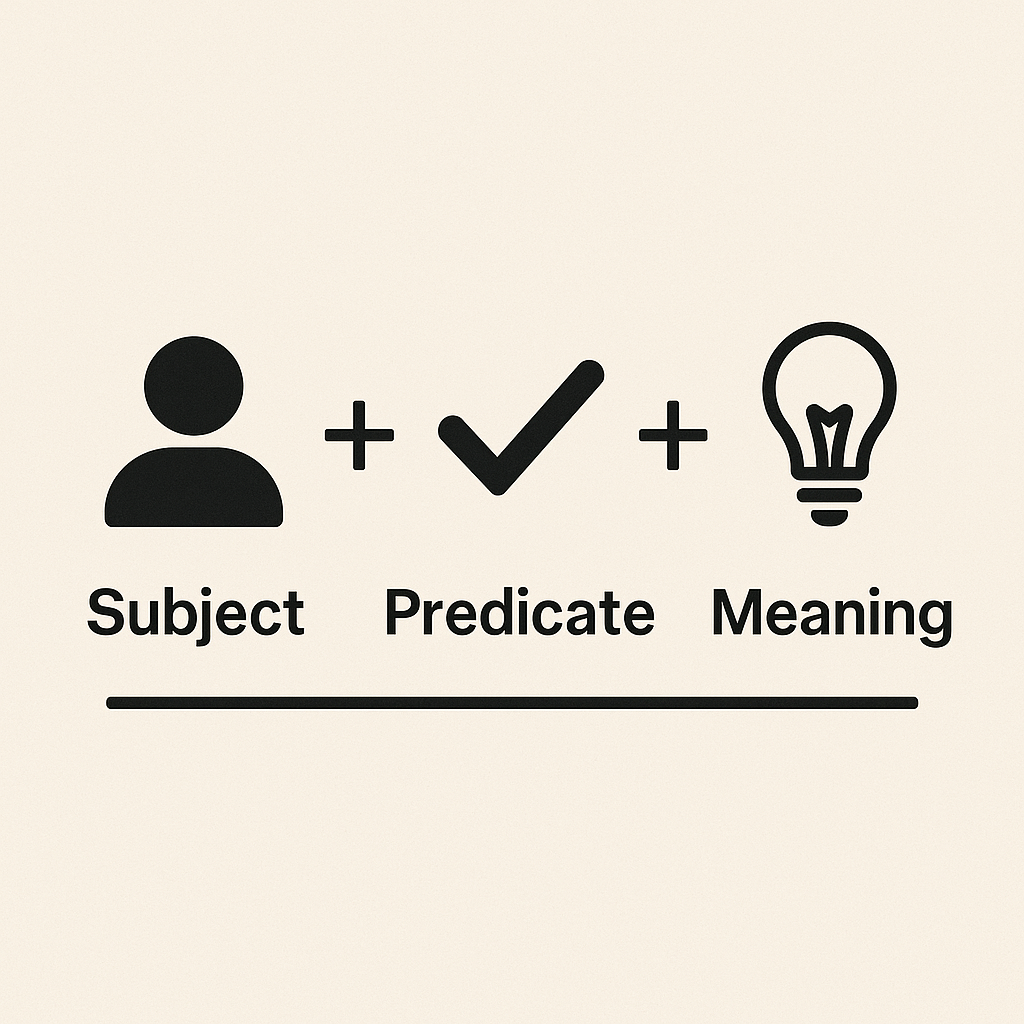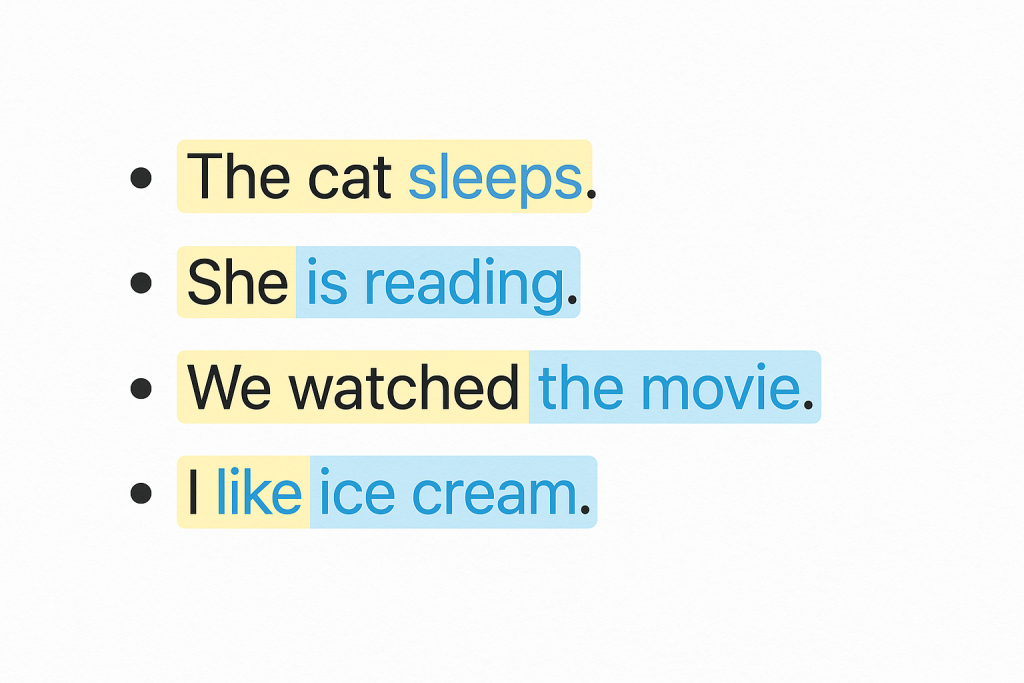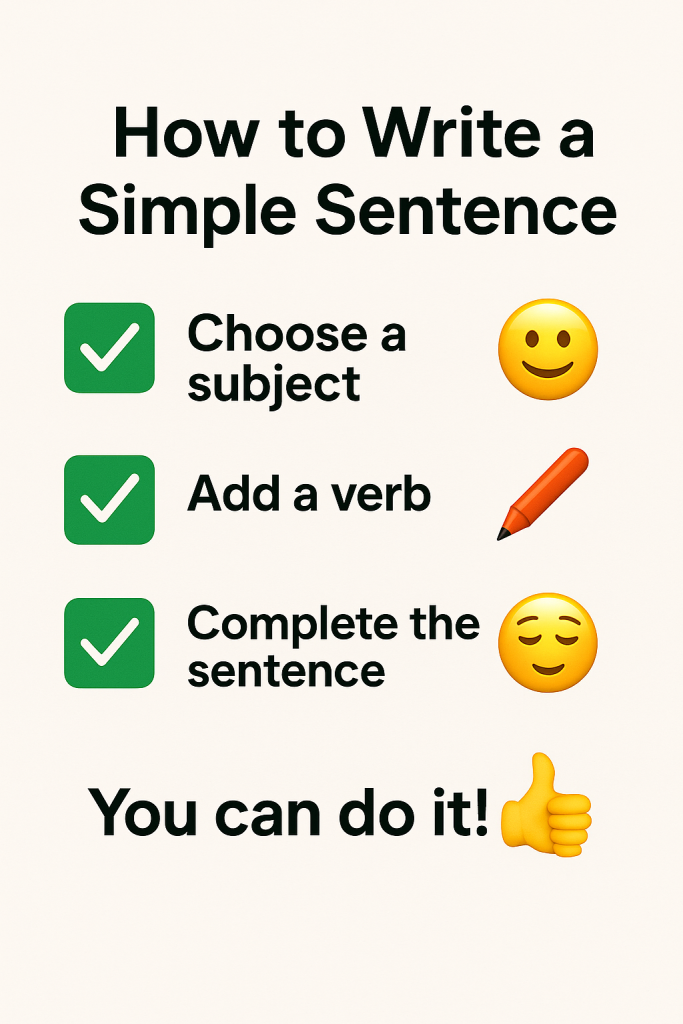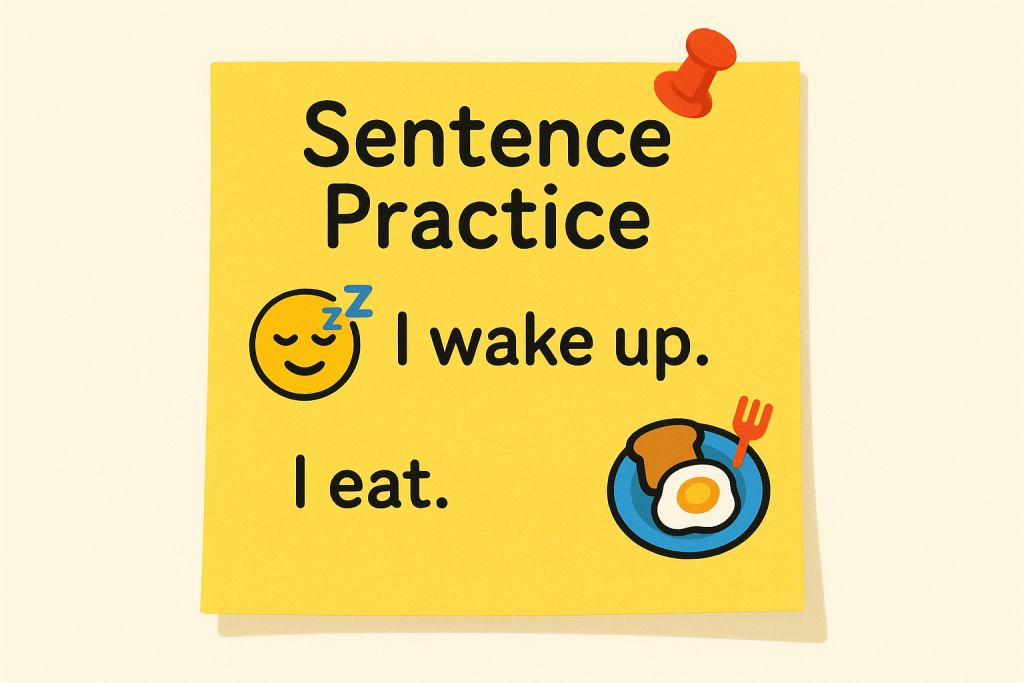Let’s face it: English grammar can feel like a cryptic puzzle where the pieces actively mock you. But here’s the cheat code—simple sentences in English. They’re like the plain black T-shirt of grammar: versatile, reliable, and impossible to screw up (mostly).

In this beautifully basic blog post, we’ll talk about what a simple sentence is (spoiler: not complicated), look at some delightful examples of simple sentences, pit them against their flashy cousin—compound sentences—and help you start building sentences that don’t implode halfway through. Even you can do it. I believe in… well, the system, not necessarily you.
What Is a Simple Sentence? (And Why You Should Care)
Let’s start with the obvious: A simple sentence is a full sentence made up of just one independent clause. One thought. One subject. One verb. That’s it. No extra drama.
- Subject? Yes.
- Verb? Of course.
- Independent thought? You wish you had more of those.
According to the Cambridge Dictionary, this sentence type is a grammar fundamental—and frankly, your safest bet in any linguistic emergency.
Simple Sentence Definition with Easy Examples

Look at those marvels of clarity. No semicolons. No emotional baggage. Just clean, grammatical brilliance. Honestly, if more people spoke like this, the world would be a calmer place.
Simple Sentences vs. Compound Sentences
Here’s where we get spicy.A compound sentence is basically two simple sentences holding hands. In most cases, they’re joined with a conjunction. Other times, a comma does the trick. Occasionally, both are needed—think of it as a punctuation sandwich.
Let’s pit them against each other:
| Feature | Simple Sentence | Compound Sentence |
|---|---|---|
| Independent Clauses | 1 | 2 or more |
| Needs a conjunction? | Nope. | Yep. Hello, ‘and’, ‘but’, ‘or’. |
| Example | You laughed. | You laughed, and I cried. |
For deeper masochism into sentence complexity, you might find conditional sentences thrilling, if you’re into that sort of thing.
Infographic Suggestion:
Draw a stick figure for simple sentences. Now draw two of them high-fiving—that’s your compound sentence. Color them green and blue respectively. Voilà, educational art.
Why Use Simple Sentences?
Because they get the job done. Fast. No footnotes required. Simple sentences are for:
Simply put, they get the job done—fast, clean, no footnotes.
For instance, they’re ideal for:
- Emails you don’t want to reread five times,
- Instructions for people who forget to turn things off before unplugging them, and
- Conversations where you don’t want to sound like an unedited novel.
How to Write a Simple Sentence (Without Crying)

Don’t overthink it. Just do this:
- Pick a subject (someone or something).
- Pick a verb (do something or be something).
- Optionally, add an object or a detail. Optional. Like salad at a pizza party.
Practice Prompts

- Write one sentence about what you’re doing right now.
- Write a sentence about your favorite food. Keep it short. I said short.
- Write a sentence about grammar. Try not to cry.
Still struggling? Our guide to simple subjects might throw you a life preserver.
Why Simple Sentences Still Matter in 2025
If English grammar is a haunted house, simple sentences are the flashlight. They light the way. They show you there’s structure in the madness. They’re not fancy, but they work.
Now go check out simple future tense if you want to talk about tomorrow without sounding like a confused time traveler. Or just browse our English grammar blog and pretend you’re studying.
For a sanity check on your grammar nightmares, the Purdue OWL guide is like a responsible adult in the room. I mean, someone has to be.
Shareable Wisdom: “Simple sentences are like plain toast: underappreciated, yet essential.”
Your turn: Share your best (or worst) simple sentence in the comments. Don’t be shy. Okay, be shy, but still do it.
FAQ
Q1: What is the definition of a simple sentence in grammar?
A simple sentence is a sentence with one subject and one verb. It expresses a complete thought. That’s it. No academic acrobatics needed.
Q2: Can a simple sentence have an object?
Yes, it can. Example: “She reads books.” One subject, one verb, one object. No drama.
Q3: What’s the difference between a simple and compound sentence?
A simple sentence is a solo act. A compound sentence is a buddy movie with a conjunction as the matchmaker. Like “I ran, and she fell.”
Q4: Are simple sentences bad or boring?
Only if you are. Joking. No, simple sentences are great for clarity and impact. Use them wisely and you’ll sound smarter than you are.
Q5: How can I get better at writing simple sentences?
Start small. Write about what you see, feel, or eat. Keep it short. The more you practice, the more your brain will accept its limits.
